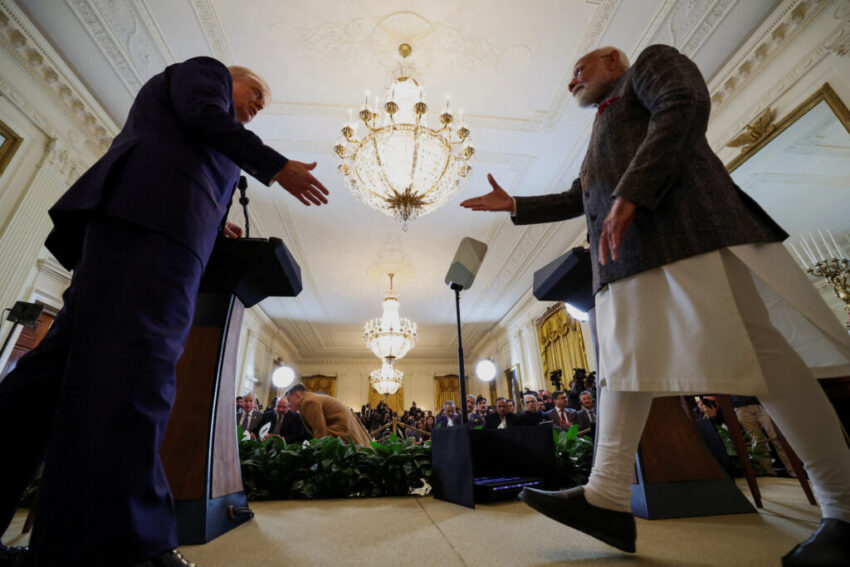
The US and India are close to resolving differences over a trade deal, President Donald Trump’s pick for ambassador said Thursday, while reiterating demands that New Delhi stop buying Russian oil.
“We are not that far apart right now on a deal. In fact, they’re negotiating the nitty-gritty of a deal,” Sergio Gor told a Senate committee in his nomination hearing in Washington. Indian negotiators are expected to meet with Trade Representative Jamieson Greer next week, he said.
India’s purchases of Russian oil remain a key source of tension in the relationship, though, and it’s unclear how that would be resolved in the trade deal. Trump slapped India with 50% tariffs in August, half of which was a penalty for the Russian energy purchases, which he says is helping President Vladimir Putin finance his war in Ukraine.
The US president is also pressuring European Union leaders to join him in ratcheting up tariffs on New Delhi and Beijing to get Putin to join ceasefire talks with Ukraine, Bloomberg reported. However, the bloc sees India as a vital trading partner, with Germany’s foreign minister saying recently that he hopes a long-stalled free-trade accord between the two sides can be concluded as early as this autumn.
“We expect more from India than we do sometimes from other nations,” Gor said. Getting India to stop buying Russian oil is a “top priority” for the Trump administration, he said.
Earlier Thursday, Commerce Secretary Howard Lutnick told CNBC the India trade deal hinges on its trade with Russia. “I think India, we’ll sort it out once they stop buying Russian oil,” he said.
The US demands have been met with stiff resistance from New Delhi. Indian Finance Minister Nirmala Sitharaman said last week that the country would continue to buy oil from Russia, underlining the government’s intent to defy US pressure. India’s imports from Russia this month are likely to average 1.8 million barrels a day, their highest since June, according to Kpler data.
Analysts said that despite the White House softening its rhetoric in recent days, it needs to do more for bilateral trade talks to move forward.
“Trump’s administration has extended an olive branch to India in the last few days, but for a deal to fructify, the 25% penalty on Russian oil has to go,” said Biswajit Dhar, a professor at the Council for Social Development, a New Delhi-based research institute. “A trade deal will hinge on how much is US willing to understand India’s sensitivities in key areas like on agriculture and energy sector.”
The US and India are resuming trade talks after weeks of a heated spat, with Trump saying this week he’ll speak with Indian Prime Minister Narendra Modi in the coming weeks.
Gor said Washington’s partnership with India was “one of the most important relationships our nation has in the world.” The US president nominated Gor, a close White House aide, to the ambassador post last month. Gor will also become Trump’s special envoy for South and Central Asian Affairs.
Indian officials have struggled to engage with the Trump administration in part because major foreign policy roles – including the ambassador post – have been empty for so long, Bloomberg News has reported.
Gor said that “in spite of this little hiccup” over tariffs, ties between the two sides remain strong, citing recent military exchanges, including an India-US exercise in Alaska.
He also sought to allay uncertainty over the Quad, the informal grouping of the US, Australia, Japan and India aimed at countering China’s growing influence. While doubts have swirled around this year’s meeting – set to be hosted by New Delhi – Gor said Trump remains committed to ensuring the Quad’s “relevance and resilience” and is in talks about attending the next meeting, though no date has been set.



